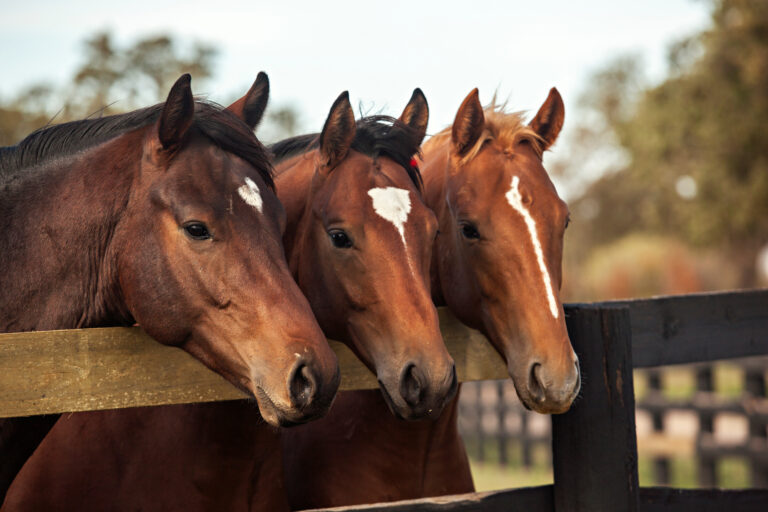Following is the revised protocol from the Kentucky State Veterinarian’s office that is to be followed when moving horses from Fair Grounds Race Track in Louisiana to Kentucky racetracks and training facilities. It is effective March 15, 2017.
Earlier this year, in response to the EHV-I outbreak at Fair Grounds Race Track in New Orleans and pursuant to 302 KAR 20:040, the Kentucky State Veterinarian’s office initiated a directive addressing horses originating from or having been stabled in the past 30 days at a premises in Louisiana where EHV-I infection had been diagnosed. The directive required these horses test negative prior to gaining entry onto a Kentucky racetrack or associated training facilities. Our objective in requiring this testing was to help us better define (understand) what—if any—elevated risks horses originating from these environments might pose to our equine populations here in Kentucky. Unfortunately, the reluctance of trainers to test their horses to qualify for movement to Kentucky has not provided enough testing of those horses to enable us to conclude the risk is not elevated. With the lack of needed evidence, the Kentucky State Veterinarian’s office continues to have concern that allowing unrestricted and less-regulated movement of those horses to a Kentucky track continues to pose elevated risk (albeit undefined) of disease introduction to our racing environments.
Last week the State Veterinarian’s office initiated a conversation with regulators and animal health officials in Louisiana, and they shared their thoughts and comments that they are not aware of suspicion of EHV-1 cases on the track. Additionally, there has apparently been a number of horses moved from Fair Grounds to other racing jurisdictions, and we’ve had no reports of disease events having occurred in those jurisdictions.
Appreciating, while there remains concern today, the Kentucky State Veterinarian’s office does have a need to facilitate interstate movement of horses from those environments to Kentucky race tracks in a safe and efficient manner. Based on the above factors, the Kentucky State Veterinarian’s office is amending their directive by removing the requirement that horses originating from (or having recently resided) Fair Grounds be tested prior to entry onto the track. The Kentucky State Veterinarian’s office will continue to require those horses (from Fair Grounds) to enter Kentucky via an Entry Permit (described below) issued by the Kentucky State Veterinarian’s office and recorded on the CVI. Copies of this CVI and the EIA testing certificate are to be on file in the track’s stable office and a copy also available in the barn. Post arrival, temperatures for each horse are to be taken three times daily and recorded on an individual log sheet that is to be maintained in the barn. Regulatory and/or track officials will be making periodic visits to the barn.
Feel free to contact the Kentucky State Veterinarian’s office should you have any questions, comments or concerns regarding this revised directive.
Qualifying Horses to Move Fair Grounds in New Orleans LA onto Kentucky Race Tracks; Effective Wednesday, March 15, 2017
1. A licensed, accredited veterinarian shall examine and issue a Certificate of Veterinary Inspection (CVI) within the day preceding a horse’s departure from Fair Grounds*.
2. The veterinarian issuing the CVI shall obtain an entry permit from the Office of Kentucky State Veterinarian 502-782-5901, Monday – Friday, 8:00 am – 4:00 pm (EST).
3. The issuing accredited veterinarian shall record the entry permit number on the CVI.
4. The issuing, accredited veterinarian shall record the EHV-1 vaccination on the CVI.
5. A statement is to be included that each horse(s) listed on the CVI has not demonstrated any evidence of infectious illness during the preceding 30 days nor exposure to any such illness.
6. Trainers shall provide to the stable office copies of the CVI and EIA test certificates in addition to keeping a copy of each document in the trainer’s assigned barn. These documents will be presented to regulatory and/or track officials when requested.
7. Animal health officials, racing officials and track officials will be conducting random inspection of horses, the stabling environment and applicable health documents that does include temperature logs during the race meet.
8. These requirements shall remain in effect until further notice.
*or having been located at Fair Grounds during the 30 days preceding departure for Kentucky








